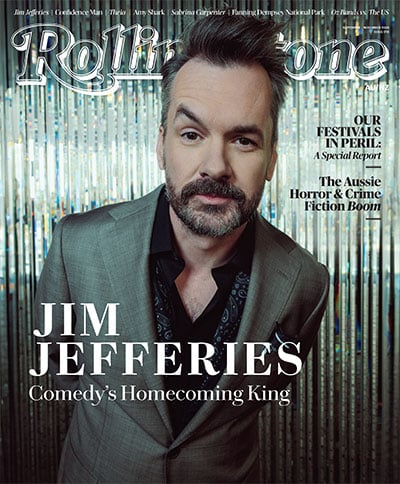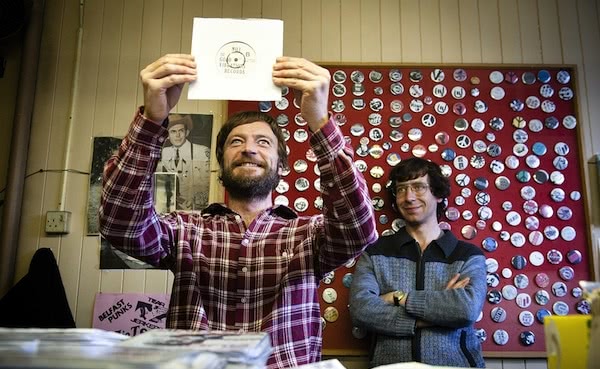Good Vibrations is a chronicle of a particular time and place whose broader context is no stranger to cinematic representation: the ongoing conflict in Northern Ireland that originated in the late ’60s, known as The Troubles.
But the particular milieu it depicts is the punk rock scene of late ’70s Belfast, fostered by the legendary local record label and shop of the film’s title, founded by Terri Hooley (Games of Thrones’ Richard Dormer), and the film itself is a buoyant comedy in the vein of Michael Winterbottom’s Tony Wilson/Factory Records chronicle 24 Hour Party People. Lisa Barros D’Sa – who co-directed with Glenn Leyburn – explains that Hooley’s story was close to her as a local. “I grew up in Belfast, and Terri’s very much a local legend in Belfast and Northern Ireland – the stories of the music that he got out into the world, and also he just has a very richly lived life. And also the courage he showed, sticking his head above the parapet in some very dark times.”
But more than just being a remarkable figure, D’Sa felt it was the universal resonance of his story that lent itself to the biopic form, however loosely the film fits the genre (it’s as much a biopic of Hooley as 24 Hour Party People was of Tony Wilson). “Not only was [Hooley] an extraordinary man living through some pretty extraordinary times, but there was a real universal story there, about youth and resistance and the power of music to defy even the darkest of times. So I think that’s why we though it would bridge the gap between being a great local story and something that could speak to people hopefully around the world.”
Unlike the Thatcher-inspired indignation that characterised most British punk rock of the same era, the Good Vibrations bands lived up to their label’s namesake. “A lot of people associate punk with London, with the Sex Pistols, with that whole kind of scene… For us, Belfast really stood out against that in a way. It wasn’t about dissatisfaction, it wasn’t about anarchy, it was really about the opposite in many ways. It was about kids whose most radical wish was to have a normal life.
“A lot of the songs from bands like Rudi and The Undertones and The Outcasts, they’re singing about things that are so much more simple and innocent than we would associate with our idea of punk … they’re singing about some girl they might fancy on a bus. What they’re hoping for is to go out and listen to music on a Saturday night. You know, very simple things that are to do with being young. Because those were the experiences that were really denied to them by the very dark events that were happening on their doorstep. That’s what Terri was trying to live and trying to offer to a lot of the young people, an alternative way to do with music and being young and being alive. So I think that’s the distinction.”
Additionally, D’Sa posits that Hooley’s story has added resonance given the ways in which music is disseminated and consumed today. “Terri, like a lot of music lovers, was obsessed with the idea of the physical object of a record… The Good Vibrations shop back in those days was a place to sell music, but more importantly, it provided a community space for a lot of kids. It was a place where they could get together and be likeminded together. And I think that’s the case still with local record stores, many of which are under threat and now and trying to survive. It’s a different era, but there’s certainly things that have been lost in that transition to our new way of doing things.”
BY IAN BARR
Good Vibrations screens at the British Film Festival at Palace Norton Street on November 22 and 29 and at Palace Verona on November 23 and 28.

































